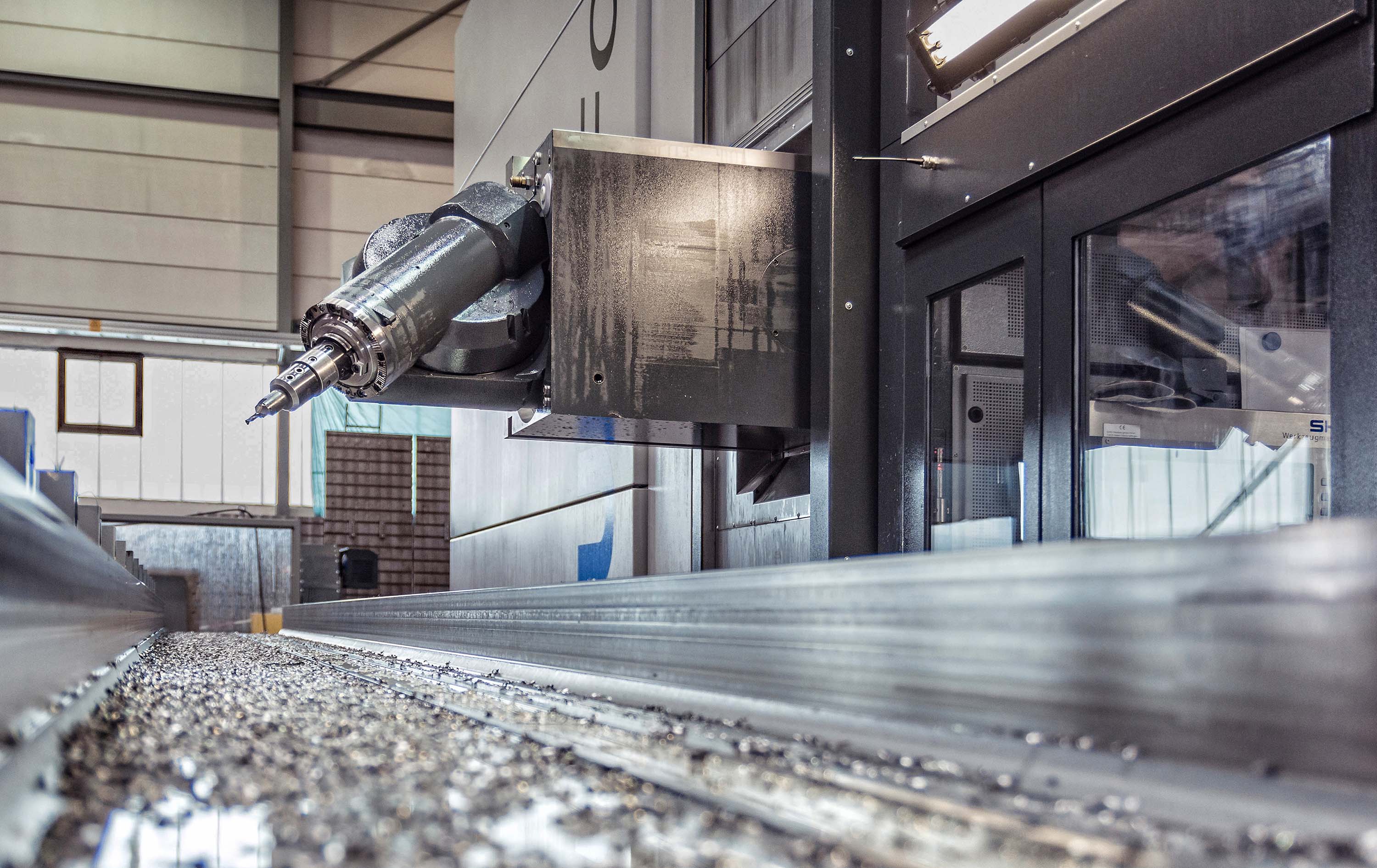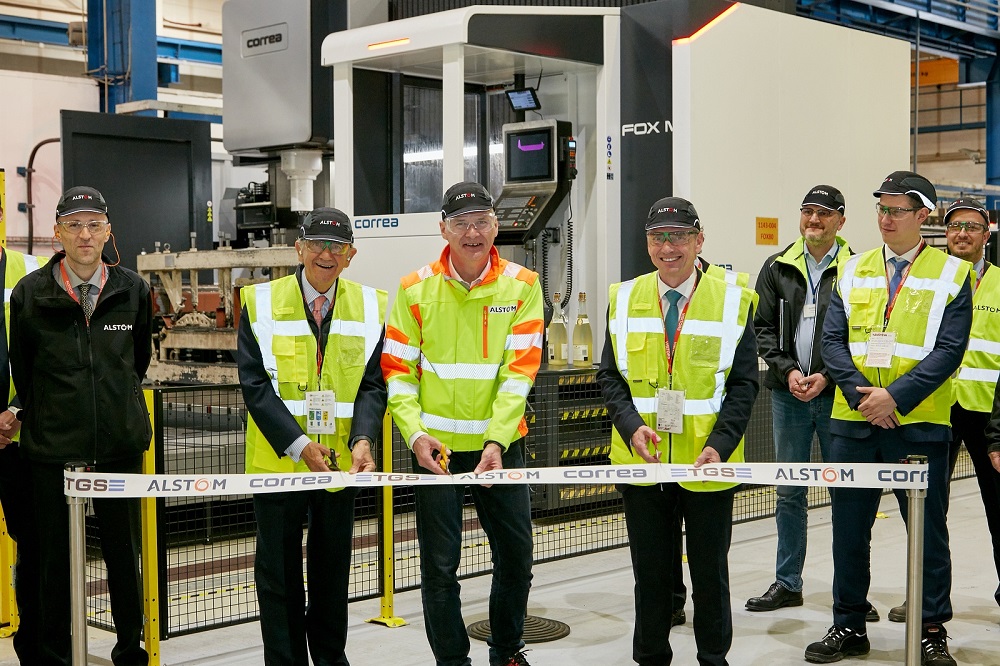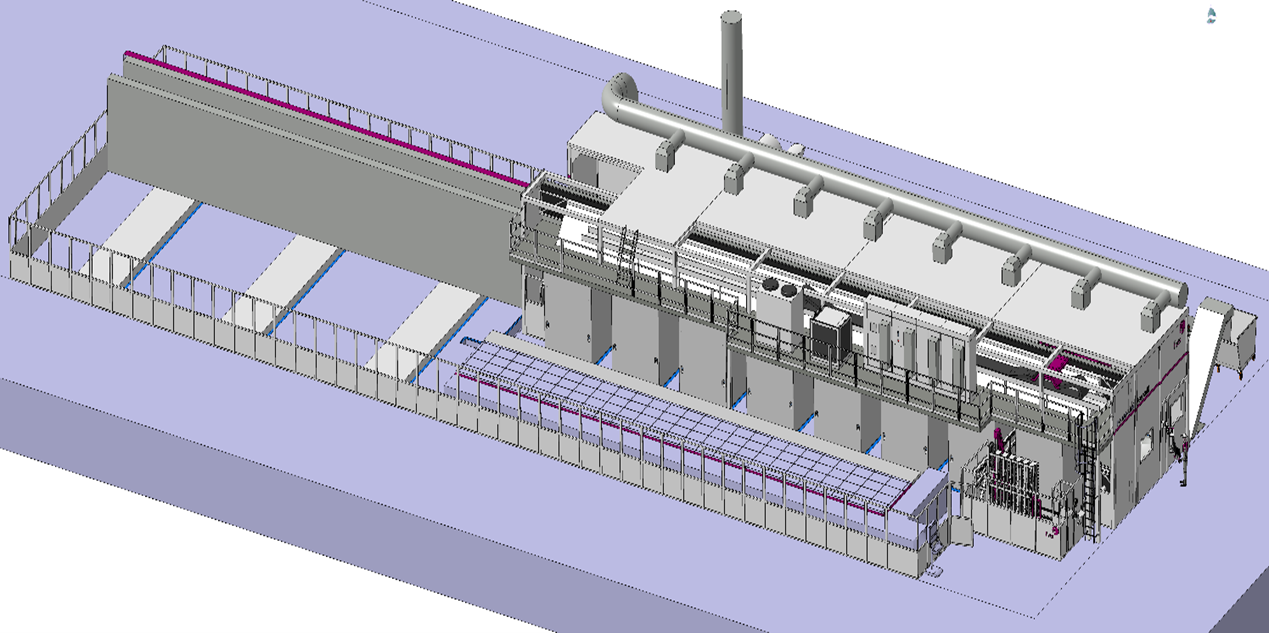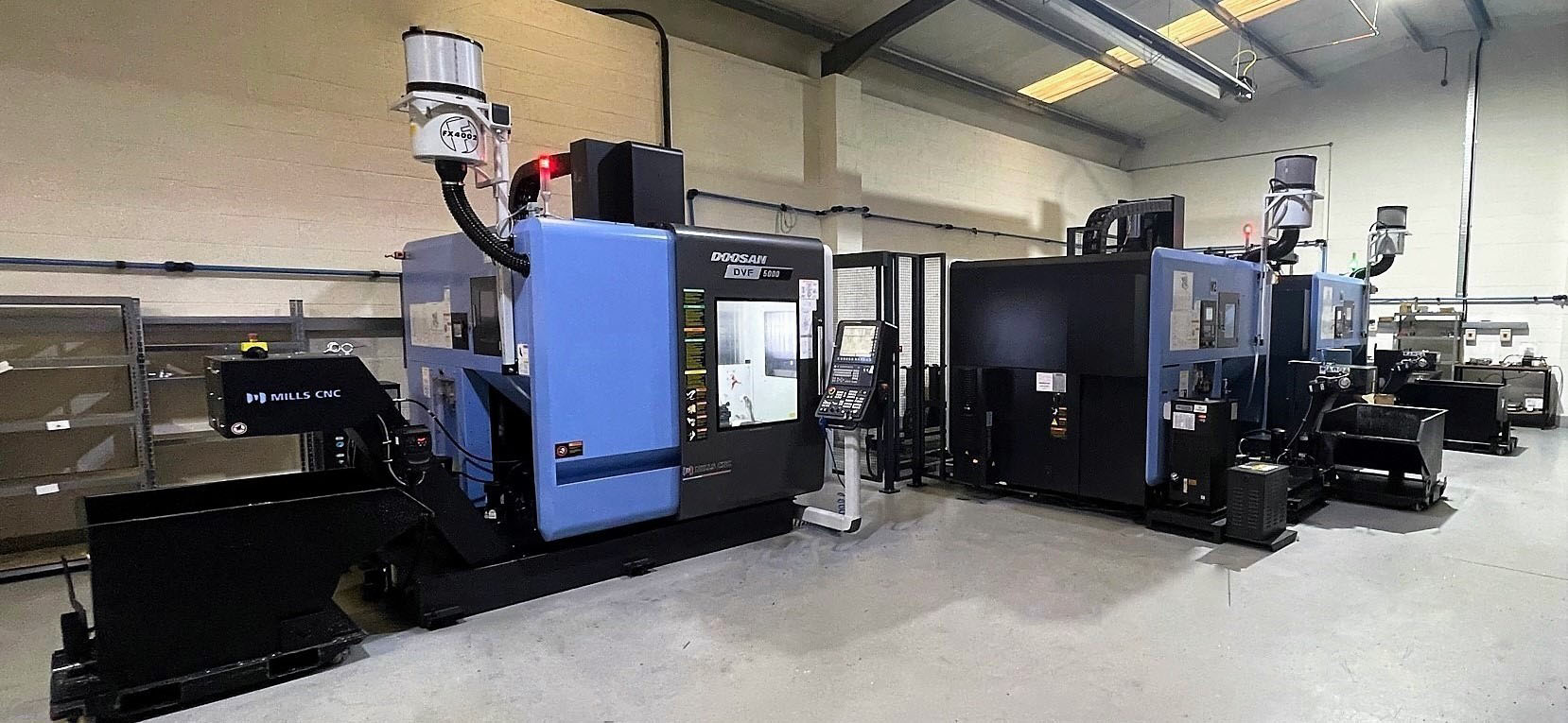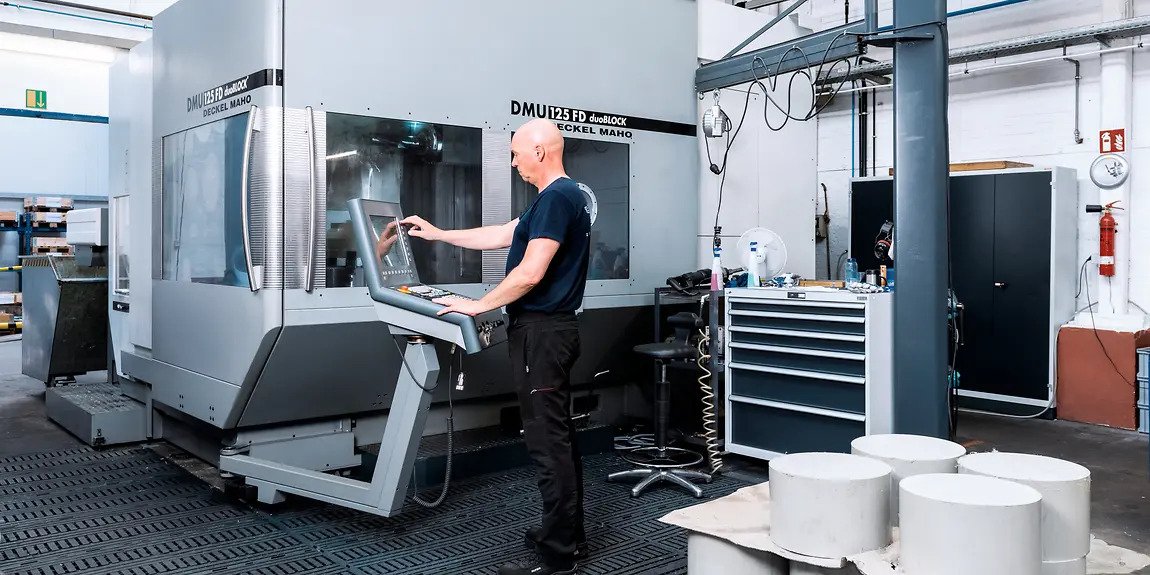Forming part of a £26m investment by British Steel’s owner Jingye Group in the Skinningrove steelworks near Redcar, a travelling-column machining centre with a working envelope of 14,000 x 4100 x 1600 mm is currently being built in Germany by SHW Werkzeugmaschinen. It will arrive at Skinningrove towards the end of 2023, where it will be set up as a turnkey installation by Kingsbury, SHW’s sole UK agent.
Despite being of such large capacity, the Uniforce 4000 five-axis machine will nevertheless hold extremely tight tolerance on special rolled steel profiles produced in the mill. British Steel says that the combination of size and accuracy will set the company’s machining capability apart from that of other global players.
The rationale for the latest project is a legacy situation within British Steel that for the past 20 years has seen special profiles produced in Skinningrove transferred by truck 35 miles west to the group’s Darlington machine shop for processing. The resulting bottleneck limited throughput of the company’s special steel profiles and delayed its just-in-time delivery to world markets.
Dominic Hill, British Steel’s technical manager -special profiles, says: “We opted for this large milling solution from Kingsbury rather than those by other suppliers due to the high build quality of the German machine, as well as certain design features that are unique in this size range.One is counterbalancing of the head driven by twin ballscrews to compensate mechanically for droop, whereas the other OEMs offered less effective software compensation.
He adds: “The other significant plus point is the use of box guideways rather than linear guideways, which translates into higher rigidity, productivity and machining accuracy.”
For further information www.kingsburyuk.com






